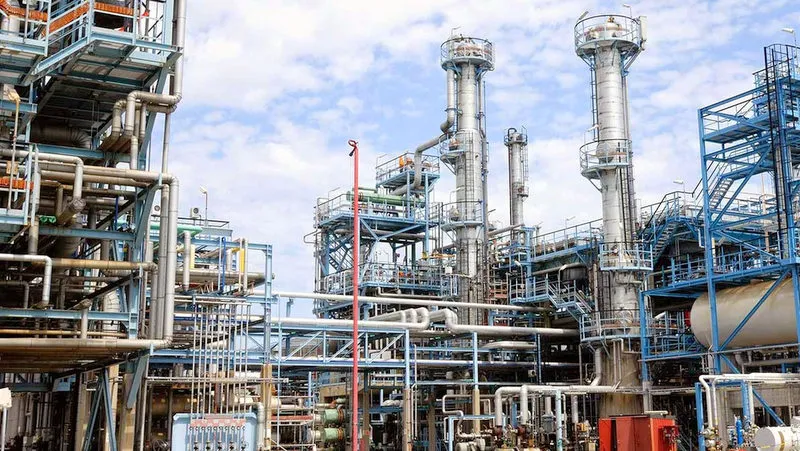Key stakeholders in Nigeria’s oil and gas sector are getting worried over the retention of a large number of workers at the near- moribund local refineries.
There have been calls in recent times that despite paucity of funds to drive economic growth government is paying for redundancy as local refineries keeping these workers are not functional.
Nigeria’s four refineries have about 1,586 new staff, paying salaries, wages and other benefits which in the view of some people are unproductive workers and their pay is calculated to the tune of N69 billion.
According to an audited statements of the NNPC, Ltd, two plants located in Port Harcourt with an installed capacity of 210,000 barrels a day, bpd employed 487 new staff members in 2020, Kaduna refinery with an installed capacity 110,000 of barrels per day (bpd) employed 655 new staffs, while the Warri refinery with an installed capacity of 125,000 bpd employed 444 new staffs within the same period.
According the report, out of the 487 staff members employed in Port Harcourt refinery, 430 were senior and management staff, amounting to 88.2 per cent with huge financial implications while only 57 were junior staff members.
The audited report showed the Port Harcourt refinery paid the 487 new workers N3.93 billion annually, indicating that each of them takes an average of N8.072 million annually or N672, 713 monthly.
Out of 675 staff engaged by the refinery in 2019, the financial statement showed 656 were management and senior staff, representing 97 per cent of the total, with huge financial implications.
In Kaduna refinery, the management employed 655 new staff which comprised 501 new staff in the operations department and 154 new administrative staff.
Despite generating zero revenue, total pay received by the staff of Kaduna refinery within 2020 also amounted to N26 billion implying that the NNPC sought monies from outside the refinery to pay staff salaries.
For the Warri Refinery, its audited account by Oguobi & Co and Ijebor+Ijebor, Chartered Accountants, showed the organisation employed an average of 444 new employees in 2020. The new employee comprises 80 services workers and 364 operational staff.
About N20.5 billion were spent on direct labour cost, indirect labour cost and staff welfare cost within the same period.
Observers posits hat the Nigerian National Petroleum Company, NNPC, Limited is wasting scarce resources to retain workers at the country’s near moribund refineries.
However, top industry experts have said that the workers have over time acquired technical skills to continue operating the refineries after completion of their overhauling.
Reacting to the argument, Comrade Brown Ogbeifun, former President of the Petroleum and Natural Gas Senior Staff Association of Nigeria (PENGASSAN), said it would amount to a total loss of huge infrastructure if government had completely shut the refineries down without workers to continue to run day to day services of the facilities.
Ogbeifun, an Accredited Mediator of the Centre for Effective Dispute Resolution-UK, who had served as a Committee member on Socio-Economic Impact of Downstream Deregulation in Nigeria and the Privatization of NNPC Downstream Sector, explained that those refineries are not completely out of operations.
First, he said refineries are not too old to function and citing an instance, he added that the Digboi Refinery, India was commissioned on 11th December 1901, and still functional.
He argued that the Government’s rent focus of exporting crude for dollars led the country to abandoning the turnaround maintenance of the refineries, adding, “Can you imagine the savings we would have made during this Russia-Ukrain war?”
Ogbeifun’ second point is that some of the equipments and plants need to run awaiting the overhauling process and those plants need trained refiners.
Again, he explained that one of the reasons the federal government still keep the workers is the hope of overhauling and bringing the refineries back to productive life and that government shall need the workers after then.
He noted that during the ongoing overhauling, the workers would need to understudy the newly installed components and be training on the job.
“If the government sacks them, it will pay them their exit pension. When the plants are ready, government is likely to reengage them on contract and they will be paid based on the new contractual terms,” Ogbeifun explained.
He further added that some of the refineries still perform some residual work of blending to make some of the imported fuel fit for use.
NATIONAL ECONOMY reports that casual workers engaged at the Warri Refining and Petrochemical Company in Delta State, early this year staged a peaceful protest inside the company against the management of the NNPC, demanding for conversion to permanent staff.
The protesters had marched round the Warri refinery, with placards bearing different inscriptions such as “NNPC stop the technical lies” “No conversion, no quick fix” amongst others.
The aggrieved workers who claimed to have worked at the Warri refinery between 15 and 27 years, are demanding for conversion from casual to permanent staff, salary increase, payment of all outstanding allowances, as well as better working conditions and welfare.
Nigeria holds the 10th largest oil reserves in the world of 37 billion barrels and imports refined petrol while its weak refineries perform less than 10 per cent of their capacity on a good day.





